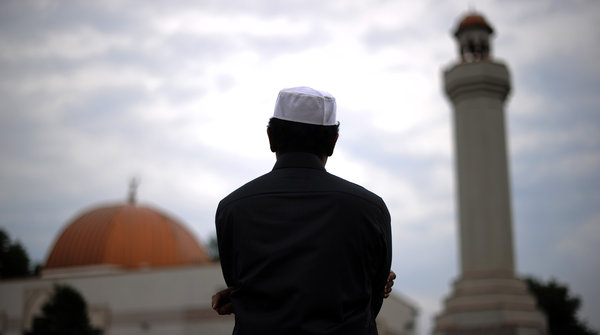LONDON — The Muslim world cannot have it both ways. It cannot place Islam at the center of political life — and in extreme cases political violence — while at the same time declaring that the religion is off-limits to contestation and ridicule.
Islam is one of the world’s three great monotheistic religions. Of them it is the youngest by several centuries and, perhaps for that reason, the most fervid and turbulent. It is also, in diverse forms, a political movement, reference and inspiration.
Politics is a rough-and-tumble game. If the emergent Islamic parties of nations in transition — like the Muslim Brotherhood in Egypt and Ennahda in Tunisia — are to honor the terms of democratic governance they will have to concede that they have no monopoly on truth, that the prescriptions of Islam are malleable and debatable, and that significant currents in their societies have different convictions and even faiths.
The past couple of weeks have been discouraging. Nobody expects a U.S. standard of freedom of speech to be adopted — or even fully understood — in these societies; they will set their own political and cultural frameworks inspired by a still fervent desire to escape from despotism, whether secular or theocratic, and by the central place of faith.
But the failure in Tunisia, Libya and Egypt to control violent mobs of Salafis enraged by mockery in America and Europe of Islam and the Prophet Muhammad suggests an unacceptable ambivalence: The rule of law here on earth must override divine indignation.
The world has tried Islamic republics. It found them oxymoronic. As Iran illustrates, they don’t work: Republican institutions, shaped by the wishes of men and women, fall victim to the Islamic superstructure, supposedly shaped by God.
The great challenge of the Arab Spring is to prove that, as in Turkey, parties of Islamic inspiration can embrace a modern pluralism and so usher their societies from a culture of grievance and victimhood to one of creativity and agency.
Just how deep the grievances remain in the Arab world — over loss of power, economic stagnation, colonial intrusion, Western wars and Israel — has been clear in the latest eruption. Change will be slow.
But it is coming: These societies will not return to tyranny. The West has an overwhelming strategic interest in supporting transitions that offer the youth of the Arab world opportunity: Egypt now dwarfs Afghanistan in its importance to fighting Islamic extremism.
But the West will not do so by compromising its own values. The porn-grade American movie that started the unrest was pitiful. The murderous violence that followed from Cairo to Benghazi was criminal. Charlie Hebdo, the French satirical newspaper, then had a strong editorial case for mocking the religious fundamentalism that produced the killing; it chose to do so through caricatures of Muhammad.
Gérard Biard, the editor in chief of Charlie Hebdo, put the case well: “We’re a newspaper that respects French law. Now, if there’s a law that is different in Kabul or Riyadh, we’re not going to bother ourselves with respecting it.” Alluding to all the violence, Biard asked: “Are we supposed to not do that news?”
He is right. There are too many hypocrisies in Islam — deploring attacks on it while often casting scorn on Judaism and Christianity, claiming the mantle of peace while inspiring violence — for it to expect to be spared the cartoonist’s arrows.
The video insulting Muhammad reflected the visceral Islamophobia of its authors. Charlie Hebdo was driven by a different agenda: the refusal to be cowed by a spate of atavistic Islamist religious violence.
Still, I defend the right of the video’s authors even if I loathe what they produced. The U.S. Supreme Court, in its 1969 Brandenburg v. Ohio decision, overturned the conviction of a Ku Klux Klan leader who had menaced political officials with violence, saying that “the constitutional guarantees of free speech and free press do not permit a State to forbid or proscribe advocacy of the use of force.” As Glenn Greenwald wrote in The Guardian, “Obviously, if the state cannot suppress speech even where it explicitly advocates violence, then it cannot suppress a video on the ground that it implicitly incites violence.”
The rich maelstrom of ideas in the United States is inextricably tied to this fundamental freedom. It cannot be compromised.
As for the new leaders of Egypt, Libya and Tunisia, and the great mass of moderate Muslims, they might recall the words of the late Grand Ayatollah Hossein Ali Montazeri protesting the stolen Iranian election of 2009 — an example of God’s supposed will imposed over the will of the people:
“A characteristic of a strong and legitimate government — Islamic or not — is that it is capable of respecting all opinions, whether they support it or oppose it. This is necessary for any political system, in order to embrace all social classes and encourage them to participate in the affairs of their nation, and not dismiss and repulse them.”
Montazeri fell out with Ayatollah Khomeini because his Iranian theocracy was incapable of “respecting all opinions.” Decades on, in this Arab awakening, that challenge remains for political Islam.



